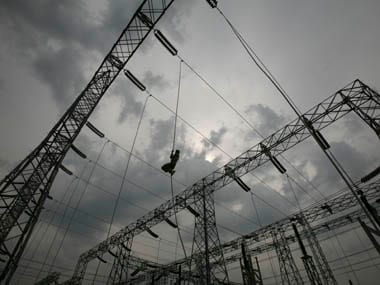Power generation has grown rapidly in recent years. There has been a considerable shift from fossil fuel-based energy generation to clean and renewable sources of power generation, which is evident by the growing share of renewables in the current power generation system. [caption id=“attachment_3268218” align=“alignleft” width=“380”]  Representational image. Reuters[/caption] For the power sector in India which currently enjoys a multitude of tax concessions and exemptions, the advent of GST is going to bring about an unfamiliar change. It will also bring about a shift in the trajectory of the sector and its growth. The success of the transition to a new tax regime will inadvertently depend upon how well the industry as well as individuals prepare in adapting to this change. The primary effect of exclusion of power sector from the GST regime will be felt by the power generators who will not pay GST rates as output tax. However, inputs will be taxed under GST. Therefore, this disbalance of not being able to claim tax credits will result in higher cost of electricity production. The decision to tax coal at the lowest rate of 5 percent is a positive move and will bring down cost of fuel considerably impacting the entire value chain. However, the electric meters have been put under the 18 per cent tax bracket, which will increase the cost for new customers. Electricity distribution is the final component of the value chain and the most important as it links the end consumers with the rest of the value chain. This is an inherently complex element of the power sector. It is also considered the weakest given the present health of discoms in the country. Discoms purchase power at wholesale rates for selling to end consumers thereby operating as market intermediaries. They also charge a mark-up over the wholesale rate before supplying to the consumers. The overall rate is reflected in terms of tariff as regulated by State Electricity Regulatory Commissions. Therefore, keeping power distribution out of the ambit of GST is not much change for the sector directly. However, lowered costs of coal will benefit distribution companies by bringing down their costs of purchase of power. The power sector is essentially a mesh of contracts for engineering, procurement, construction (EPC) to generate electricity, boost energy efficiency and shore up renewable power. Yet, input tax credit would not be available on EPC contracts, with electricity outside the GST regime. Further, the Finance Act of 1994, in section 66D, lists transmission and distribution (T&D) of electricity in the negative list of services. Also, some of the distribution vendors are not included in the GST regime and it may impact their business as well. Discoms or distribution franchises (which are trying to bring in efficiencies in the system) stand to lose because they would no longer get input tax credit. This means they will have to pay tax on everything they buy (goods and services) but can’t set it off against the GST they bill. Therefore, their own profitability may be hit slightly. One way out could have been to impose a nominal GST on electricity (say 3 percent, as on gold biscuits) so that electricity at least comes into the tax chain, pay their fair share, and the distributors can claim input tax credit. Overall GST, hopefully will bring in greater transparency and further revolutionise the electricity sector, which is very much needed in the country. The author is managing director, Feedback Energy Distribution Company (FEDCO)
Overall GST, hopefully will bring in greater transparency and further revolutionise the electricity sector
Advertisement
End of Article


)

)
)
)
)
)
)
)
)



